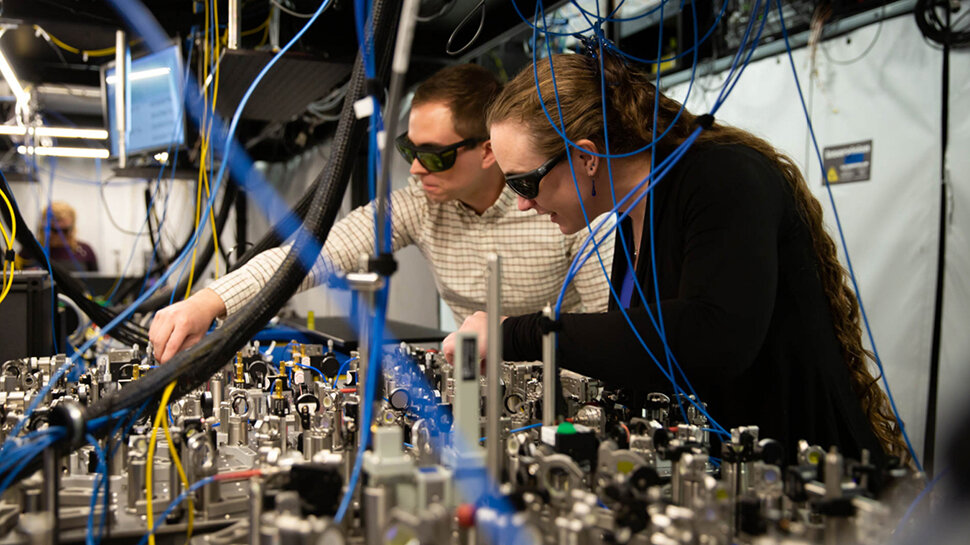Search the Community
Showing results for tags 'quantum computing'.
-
Some Google Chrome users are reporting problems connecting to websites, servers and firewalls following the release of Chrome 124 earlier this month, according to Bleeping Computer. The latest version of the browser introduced the new quantum-resistant X25519Kyber768 encapsulation mechanism, which was enabled by default. Testing of the post-quantum secure TLS key encapsulation mechanism started last August, but since its public launch, it has already caused a headache for the browser’s users. Quantum-resistant cryptography is breaking Chrome for some users An email sent on behalf of Chrome’s security workers explains the necessity behind implementing quantum-resistant tools now, despite the current threat being minimal: “This protects users’ traffic from so-called “store now decrypt later” attacks, in which a future quantum computer could decrypt encrypted traffic recorded today.” A separate blog post confirms the nature of the advanced tool: “This is a hybrid X25519 and Kyber768 key agreement based on an IETF standard.” Despite months of testing, the problem seems to have risen from web servers failing to adequately implement TLS, rather than an issue with Chrome. The error results in the rejection of connections that use the Kyber768 quantum-resistant key agreement algorithm, including connections with Chrome’s hybrid key. Clearly, this is not a simple fix that can be implemented by Chrome, but it requires a larger and more orchestrated effort to transform the Internet into one that can handle sophisticated quantum-safe cryptography. For now, affected users are being advised to disable the TLS 1.3 hybridized Kyber support in Chrome. However, long-term post-quantum secure ciphers will be essential in TLS, and the ability to disable the feature will likely be removed in the future, highlighting the importance of addressing the issue’s route cause earlier on so that websites can be prepared for quantum-based attacks in the future. More from TechRadar Pro Apple future-proofing iMessage to protect against the scary future of quantum computing hackingThese are the best privacy tools and anonymous browsersWe’ve rounded up a list of the best VPNs View the full article
-
- google chrome
-
(and 3 more)
Tagged with:
-
A paper released during the SIGBOVIK 2024 conference details an attempt to simulate the IBM ‘quantum utility’ experiment on a Commodore 64. The authors claim the experiment was a success. View the full article
-
- commodore
- commodore 64
-
(and 2 more)
Tagged with:
-
Unlike traditional computing that uses binary bits, quantum computing uses quantum bits or 'qubits', enabling simultaneous processing of vast amounts of data, potentially solving complex problems much faster than conventional computers. In a major step forward for quantum computing, Microsoft and Quantinuum have unveiled the most reliable logical qubits to date, boasting an error rate 800 times lower than physical qubits. This groundbreaking achievement involved running over 14,000 individual experiments without a single error, which could make quantum computing a viable technology for various industries. Azure Quantum Elements platform Microsoft says the successful demonstration was made possible by applying its innovative qubit-virtualization system (coupled with error diagnostics and correction) to Quantinuum's ion-trap hardware. Jason Zander, EVP of Strategic Missions and Technologies at Microsoft, says, "This finally moves us out of the current noisy intermediate-scale quantum (NISQ) level to Level 2 Resilient quantum computing." The potential of this advancement is enormous. As Zander says, “With a hybrid supercomputer powered by 100 reliable logical qubits, organizations would start to see the scientific advantage, while scaling closer to 1,000 reliable logical qubits would unlock commercial advantage.” Quantum computing holds enormous promise for solving some of society's most daunting challenges, including climate change, food shortages, and the energy crisis. These issues often boil down to complex chemistry and materials science problems, which classical computing struggles to handle but which would be far easier for Quantum computers to manage. The task now, Microsoft says, is to continue improving the fidelity of qubits and enable fault-tolerant quantum computing. This will involve transitioning to reliable logical qubits, a feat achieved by merging multiple physical qubits to protect against noise and sustain resilient computation. While the technology's potential is immense, its widespread adoption will depend on its accessibility and cost-effectiveness. For now, though, Microsoft and Quantinuum's breakthrough marks a significant step towards making quantum computing a practical reality. More from TechRadar Pro Removing the biggest barrier to quantum adoption: accessibilityQuantum computers are fast becoming cheaper and smallerHow quantum computing can benefit drug discovery View the full article
-
Quantum computation is a field of study that explores the use of quantum mechanics principles to perform computational tasks.View the full article
-
What is Quantum Computing? Till date the computers which we are using helped us to unlock the computing power that we couldn’t process with human power alone, but with quantum computing, we can take that power even further and we can use them to do more advance things more quickly and more efficiently. It work by using quantum mechanical phenomena to process massive data sets. Classical computers would get entangle with these datasets, but with quantum properties such as superposition of states and entanglement can speed up the processing power and it can handle a seemingly unlimited number of variables. Classical computers manipulate ones and zeroes to crunch through operations, but Quantum Computers will use qubits or quantum bits which mimic the state of subatomic particles and with quantum algorithms, it can process exponentially more data more efficiently wuth the help of quantum hardware. With help of Quantum Computing almost every industry from finance to agriculture, cybersecurity to artificial intelligence, all can reap the benefit of quantum processors. What are the benefits of Quantum Computing? Like the first digital computers, quantum computers offer the possibility of technology exponentially more powerful than current systems. They stand to change companies, entire industries, and the world by solving problems that seem impossible today. Unbreakable encryption – Quantum computers will change the landscape of data security. Google announced it has a quantum computer that is 100 million times faster than any classical computer in its lab. What is the differnce between Quantum Computing and Classical Computing? What are the career benefits in Quantum Computing? Quantum computing is going to revolutionize the computing industry and engineers and experts quantum technology skills and its applications are likely to be in high demand in industries. A recently published report by Gartner pointing out that by 2023, 20% of IT organizations will be budgeting for quantum computing projects. And definitely like with all new technology introduced, organizations will face a shortage of experts in quantum computing. IBM’s unveiling of a 50 qubit chip in 2017 and the unveiling of the first commercial quantum computer in 2019 proves how much research is going into this tech. Google’s D-Wave, Alibaba’s Aliyun cloud unit, Microsoft’s partnership with Intel, and other big organizations are racing to be the next name in quantum computing research, which shows the possibilities of a great career in Quantum Computing. Career possibilities in Quantum Computing contains the quantum programming, RF engineering, optical measurement and communication, cryogenic design and engineering, and quantum system engineering. Who should learn Quantum Computing? Anyone interested in quantum computing should learn about it, regardless of their background. However, there are certain groups of people who may be particularly interested in learning quantum computing, such as: Students and researchers in computer science, physics, and engineering: Quantum computing is a rapidly developing field, and there is a high demand for skilled workers. Students and researchers in these fields can gain a competitive advantage by learning about quantum computing. Software developers: Quantum computing will revolutionize many industries, and software developers will be in high demand to develop new quantum algorithms and applications. Business and finance professionals: Quantum computing has the potential to solve complex problems in finance, such as risk analysis and portfolio optimization. Business and finance professionals who learn about quantum computing can gain an edge over their competitors. Anyone who is curious about the future of technology: Quantum computing is one of the most exciting and transformative technologies of our time. Anyone who is interested in the future of technology should learn about quantum computing. What are the pre-requsites to learn Quantum Computing? Learning quantum computing can be a challenging but rewarding endeavor. While you don’t necessarily need a specific background in physics or advanced mathematics to get started, having a strong foundation in certain areas can certainly be beneficial. Here are some prerequisites and recommended knowledge areas to help you get started with quantum computing: Mathematics: Linear Algebra: Understanding concepts like vector spaces, matrices, eigenvectors, and eigenvalues is crucial for understanding quantum mechanics and quantum algorithms. Calculus: Basic calculus concepts, including derivatives and integrals, are important for understanding the mathematical underpinnings of quantum physics. Probability and Statistics: Quantum computing often involves probabilistic outcomes, so a solid grasp of probability theory and statistics is helpful. Quantum Mechanics (Optional but beneficial): While not absolutely necessary, having a basic understanding of quantum mechanics can help you grasp the underlying principles of quantum computing. You can start with introductory quantum mechanics books or online resources. Programming: Proficiency in at least one programming language is essential for implementing and simulating quantum algorithms. Python is a commonly used language for quantum computing, and libraries like Qiskit (for IBM’s quantum devices) and Cirq (for Google’s quantum devices) provide useful tools and resources. Quantum Computing Concepts: Familiarize yourself with the foundational concepts of quantum computing, such as qubits, superposition, entanglement, and quantum gates. Computer Science Fundamentals: Understanding basic computer science concepts, including algorithms and data structures, will be useful when working on quantum algorithms and simulations. Quantum Computing Resources: Access to quantum computing resources, such as cloud-based quantum computing platforms, can help you experiment and practice with real quantum computers even if you don’t have access to a physical quantum computer. Online Courses and Books: Consider enrolling in online courses or reading books dedicated to quantum computing. Some popular online courses and books include those offered by IBM, MIT, and various universities. Patience and Dedication: Quantum computing can be a complex field, so it’s important to approach it with patience and dedication. Be prepared to spend time experimenting, learning, and troubleshooting. How to learn Quantum Computing? We are excited to publish our new Quantum Computing Course which will help you to explore the key concepts of quantum computing and find out how it’s changing computer science with the benefits it has. In this Quantum Computing Course, we will discuss all about to build quantum computers, cover the crucial principles in quantum computing, and take a look at some of the major quantum computing algorithms. This course will definitely help you to learn the Quantum Computing and move to fulfilling career in this evolving technology. The post What is Quantum Computing and How to learn it? appeared first on DevOpsSchool.com. View the full article
-
Amazon Braket, the quantum computing service from AWS, adds support for Borealis, a new photonic quantum processing unit (QPU) from Xanadu. The Borealis device is the first publicly available quantum computer that is claimed to have achieved quantum advantage: the technical milestone when a quantum computer outperforms the world’s fastest supercomputers on a well-defined task, in a peer-reviewed study published in the journal of Nature. Until now, none of the devices that have been claimed to demonstrate quantum advantage have been accessible to the public, but for the first time, customers can test a quantum advantage claim for themselves on Amazon Braket while also exploring potential applications for this technology. View the full article
-
Forum Statistics
70.4k
Total Topics68.3k
Total Posts
.png.6dd3056f38e93712a18d153891e8e0fc.png.1dbd1e5f05de09e66333e631e3342b83.png.933f4dc78ef5a5d2971934bd41ead8a1.png)








